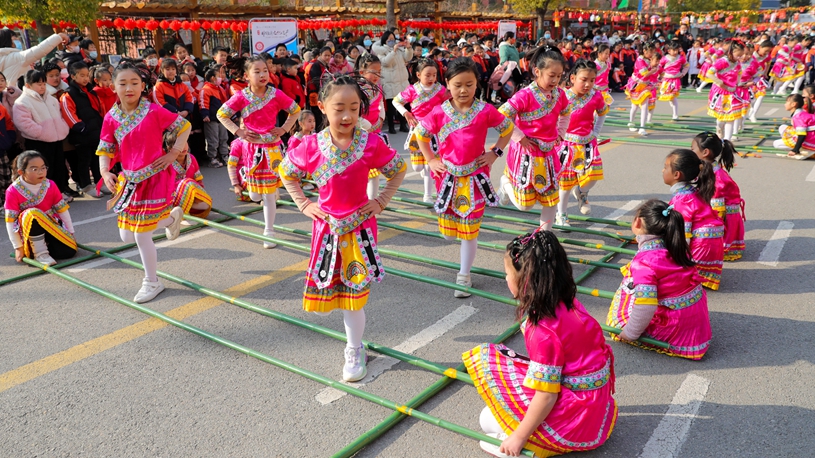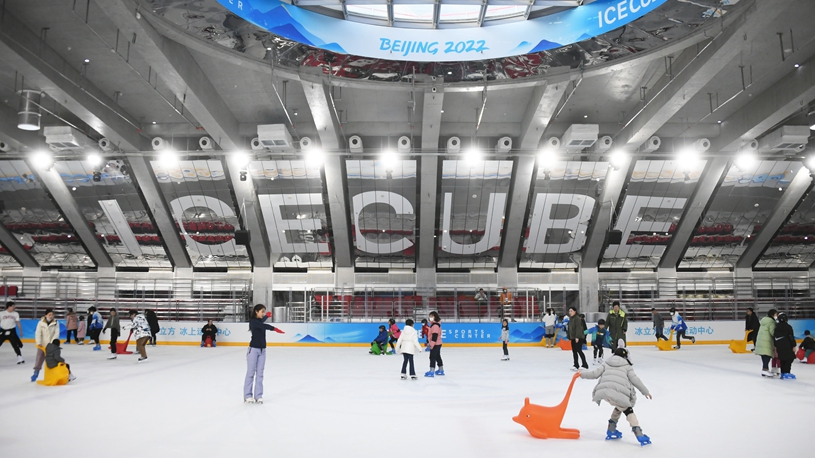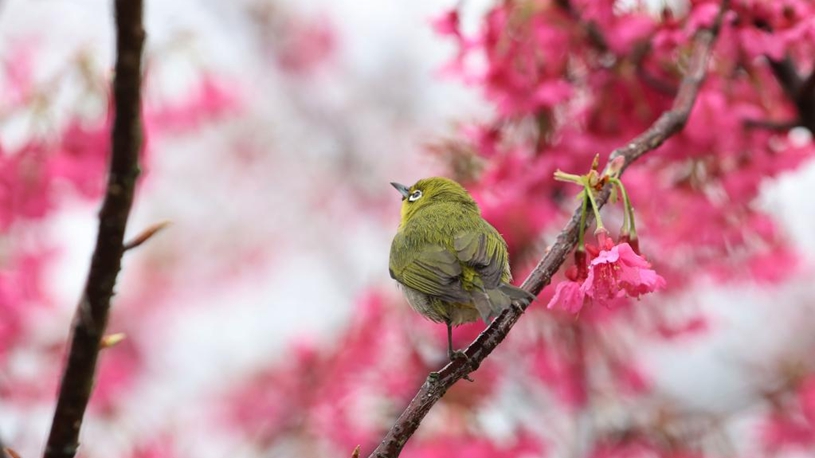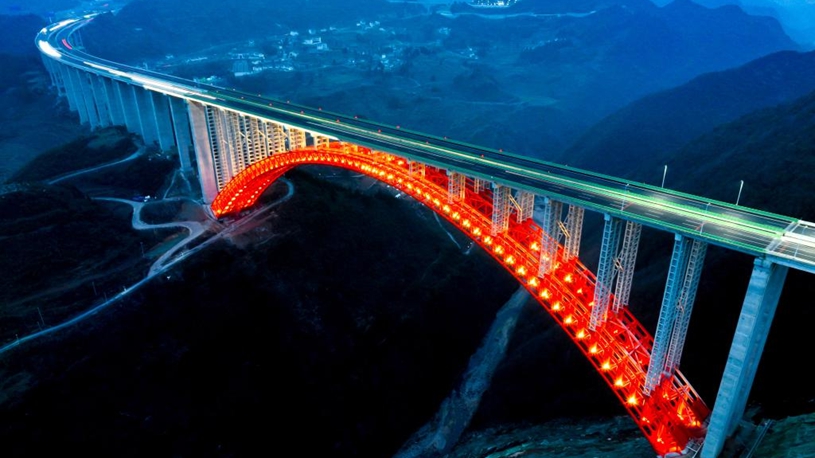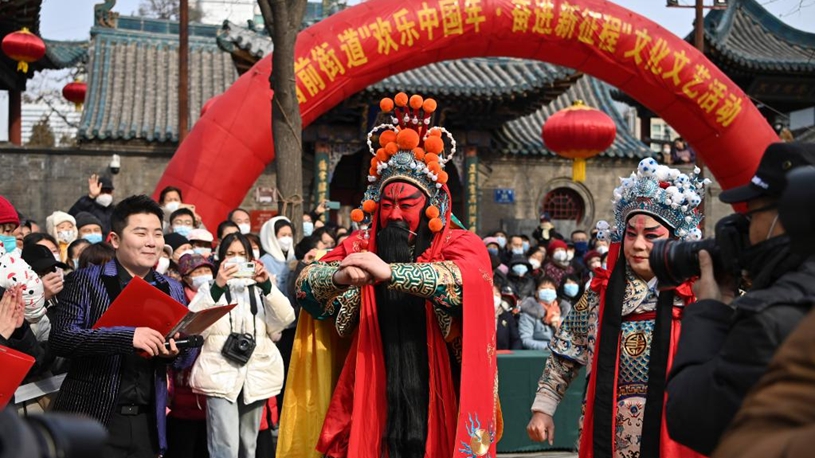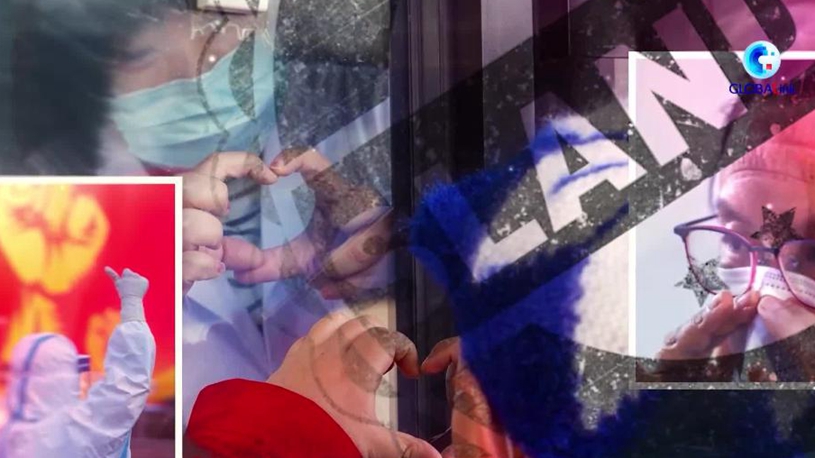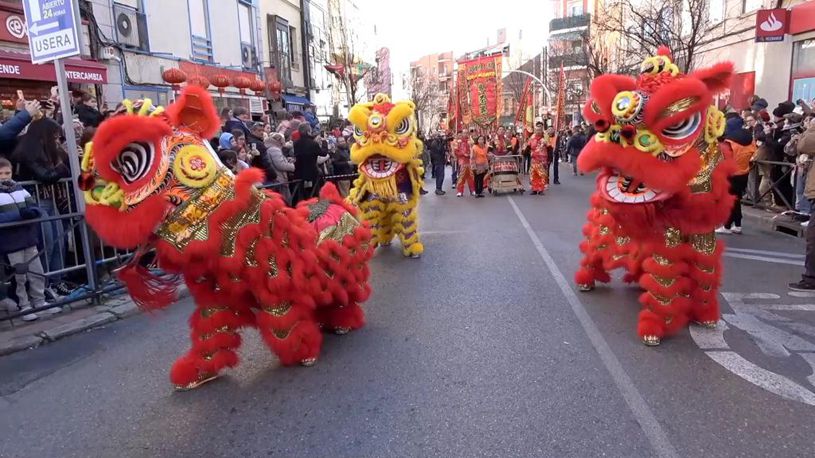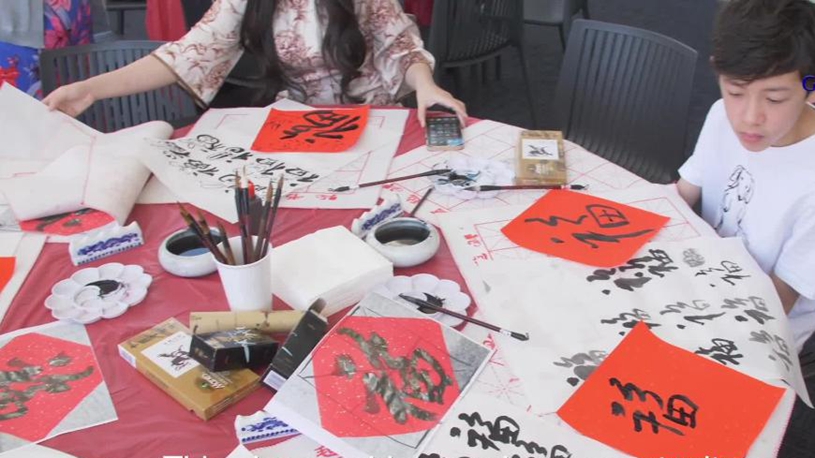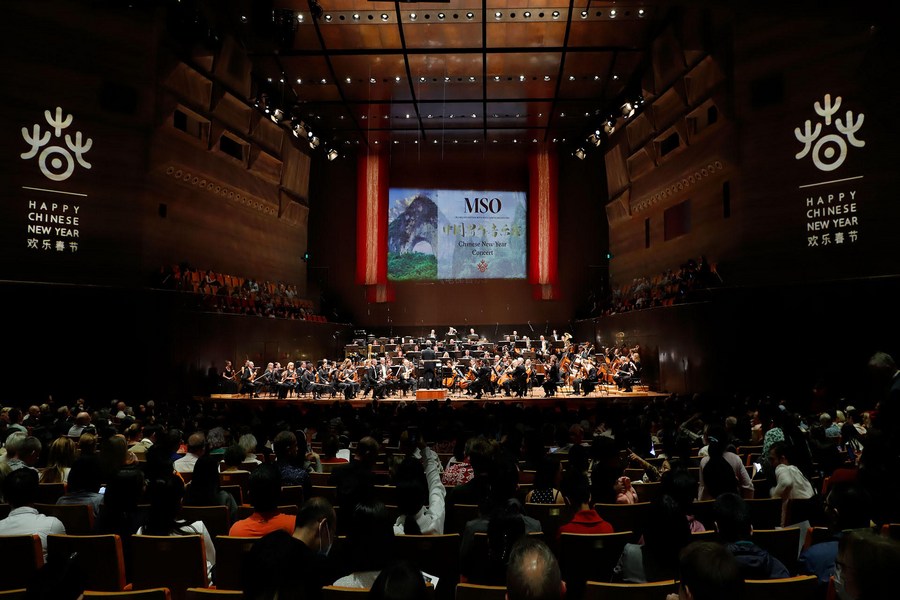
The Melbourne Symphony Orchestra performs during the 10th annual Chinese New Year Concert at the Hamer Hall in Melbourne, Australia on Feb. 4, 2023. (Photo by Tower Liu/Provided by Melbourne Symphony Orchestra)
"I hope that a Western audience will feel Chinese music and Chinese composers really have something significant to say not just about the art form, but also about music, communication, culture, history and people," said the conductor.
MELBOURNE, Australia, Feb. 6 (Xinhua) -- Opened by an epic "Symphonic Overture No.1" and surprising the audience with a "Spring Festival Overture" encore, the Chinese New Year Concert held here presented a two-hour musical conversation between Chinese, Australian and European symphony pieces, bridging together Eastern and Western cultures through musical notes to ring in a harmonious Year of the Rabbit.
The year 2023 also marks the 10th anniversary of the Melbourne Symphony Orchestra (MSO)'s Chinese New Year Concerts. To celebrate this special occasion on the eve of the Chinese Lantern Festival, the Saturday night program involved works from Chinese composers Guan Xia, Ding Shande, Ye Xiaogang and Chinese Australian composer Julian Yu.
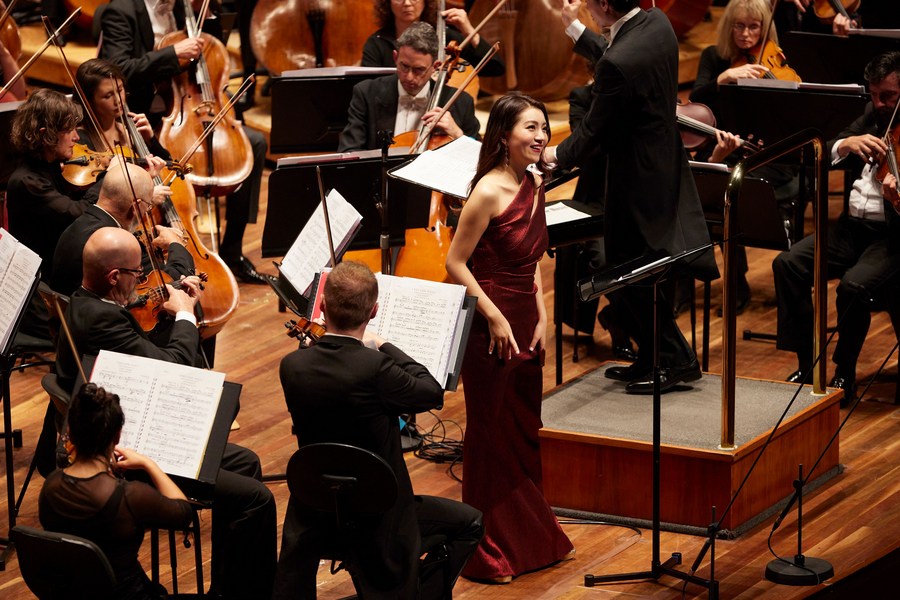
Chinese soprano Zhang Meigui (center) performs during the 10th annual Chinese New Year Concert at the Hamer Hall in Melbourne, Australia on Feb. 4, 2023. (Photo by Laura Manariti/Provided by Melbourne Symphony Orchestra)
Meanwhile, the pop-meets-classic "Elevator Music" by Australian composer Graeme Koehen and renowned Western pieces, such as "Regnava nel Silenzio" and "The Sleeping Beauty: Suite," were also performed alongside the oriental melodies.
Under the baton of Chinese-Singaporean conductor Darrell Ang, about 100 MSO musicians and four Melbourne-based Chinese traditional instrument performers shared the center stage of the 2,500-seat Hamer Hall, where the Chinese "mouth organ" Sheng and Xylophone worked in harmony to create a symphonic painting of China's Sichuan province, while Western music techniques added fresh spice to Chinese folk songs.
To many non-Chinese ears, Guan Xia's "Symphonic Overture No.1" may sound far less well-known than the "Jasmine Flower," when they think of a Chinese song. But Ang decided to open the concert with this orchestral piece and it indeed impressed the audience, no matter what their cultural backgrounds.
"I like the first one. It's epic," Emily, one of the audience and an MSO violinist, told Xinhua during the interval. Another spectator Barbara, who attended all 10 editions of the MSO's Chinese New Year Concert, referred to Guan's composition as one of her favorites as well.
"It was just a very enjoyable piece, quite varied in its interpretation. As an opening, it's basically an overture to the other pieces of music. It was really a good piece for the start of the concert," said Babara.
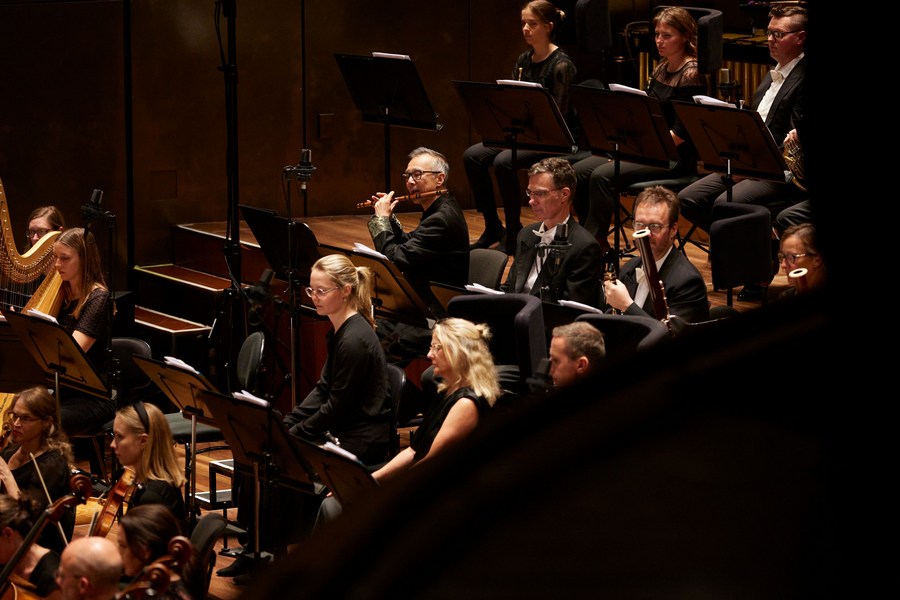
A musician performs a Chinese traditional musical instrument "di" during the 10th annual Chinese New Year Concert at the Hamer Hall in Melbourne, Australia on Feb. 4, 2023. (Photo by Laura Manariti/Provided by Melbourne Symphony Orchestra)
The soundtrack can date back to 2001, when Guan composed for the Chinese TV series "The Years of Burning Passion" and absorbed the prelude of his 1997 national opera "Dawn of Sorrow" as the opening of the TV series. "Symphonic Overture No.1" includes lyrical piano melodies, energetic percussions and solo violin junctures to express heroism and idealism.
"I want to bring something from China that the Chinese who live here in Melbourne know very well and can immediately connect with," Ang told Xinhua. "I want them to sit in the concert hall, listen to this music and immediately think of their motherland and feel that 'I'm back home in China, I want to be there, my heart is there, my memories are there and my love is there.' I want to start the concert with this connection."
That resonation didn't only arise from Chinese communities. "Guan created a wonderful work of music, like the audience said it's epic. For me, there is also a strong feeling and love of home," said Ang.
"So it doesn't matter if you are Chinese, or if you are Australian. You will understand the message. You will feel the message. This composition very successfully conveys this feeling."
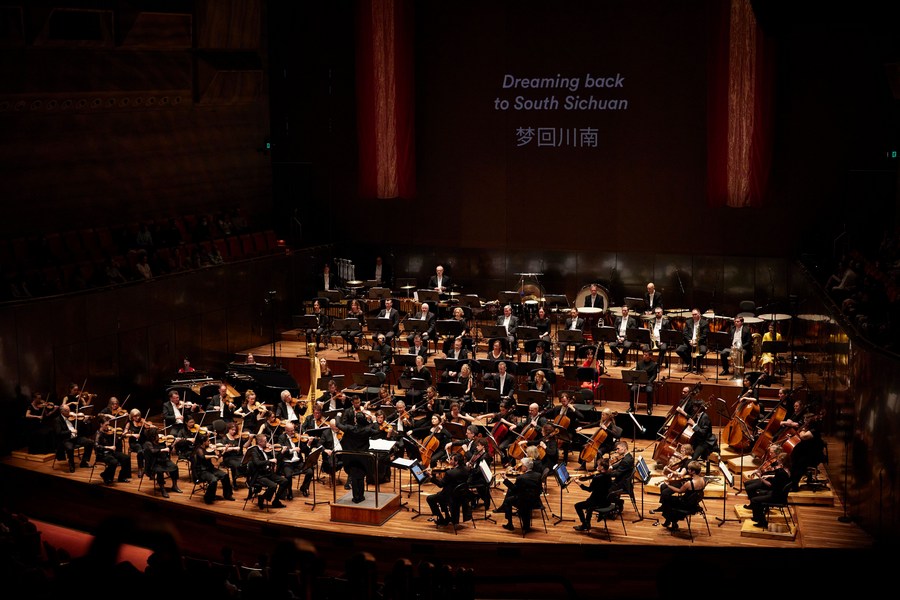
The symphony work "Sichuan Image" is performed during the 10th annual Chinese New Year Concert at the Hamer Hall in Melbourne, Australia on Feb. 4, 2023. (Photo by Laura Manariti/Provided by Melbourne Symphony Orchestra)
Speaking of the program that he and MSO Chairman David Li discussed back and forth for almost two months, Ang told Xinhua that they eventually settled on something that is not only Sichuan-focused, not only China-focused, but also something that is world-focused.
"It is very important that this program reflects the relationship or the friendship between China, Australia and the rest of the world," said Ang.
"This special occasion of Chinese New Year is not just very important to me myself, but also very important to many Chinese and Asian people. I hope this occasion has given a very good opportunity for all of us to come together and to experience our friendship and our love for one another through music," the conductor noted.
Having served as the artistic director and chief conductor of China's Sichuan Symphony Orchestra since 2017, Ang finished his MSO debut with "Spring Festival Overture" in the encore.
Following that, more opportunities lie ahead for the Grammy-nominated talent to return to the Hamer Hall, as a multi-year collaboration agreement was reached between the two orchestras, which entails co-commissioning of Chinese and Australian works, sharing of knowledge in administration and operations, promotion of each other in home countries, as well as musicians and chief conductor exchanges.
Bearing Chinese traditions in his blood and commanding an extensive repertoire, the aspiring Ang, who is fluent in six languages, is standing at the crossroad of cultural exchange and remains dedicated to bringing more Chinese music to the global stage.
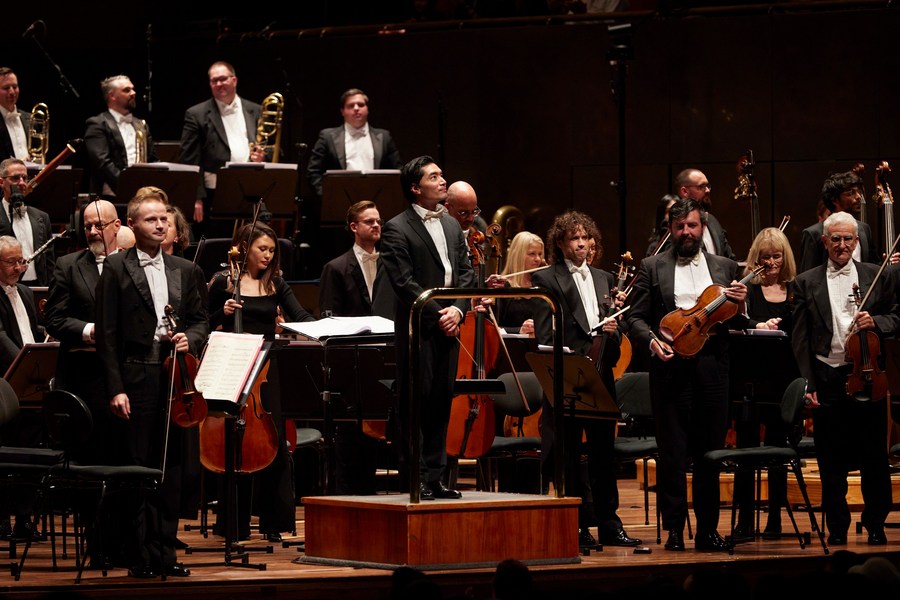
Chinese Singaporean conductor Darrell Ang (center) thanks the audience during the 10th annual Chinese New Year Concert at the Hamer Hall in Melbourne, Australia on Feb. 4, 2023. (Photo by Laura Manariti/Provided by Melbourne Symphony Orchestra)
"I think the difference with Chinese music, as compared to Western music, is that for Chinese composers, the first thing that they always do is to make sure that their music will always contain elements of their background, their culture and their history," said Ang.
"I hope that a Western audience will feel Chinese music and Chinese composers really have something significant to say not just about the art form, but also about music, communication, culture, history and people," said the conductor.
"It is my responsibility to promote Chinese music, especially those modern and contemporary pieces, to the international audience," he added.■

